Okay, you asked for it. Here it is.
--Preston
Advice for Gamblers from the Man Who Wrote the Book on It
1) Do not gamble—though because you are an addicted gambler who will not heed this most important piece of advice, go on an read the rest of these commandments.
2) If you must gamble, then learn to play poker, but do not go to the casinos.
3) If you must play poker, play it with friends once in a while for small stakes—pennies, nickels, and such.
4) If you must play poker, learn the most important rule. Fold. You must fold 19 out of 20 hands on average, unless you are having a rare night. If poker becomes a boring game for you, then you may become a good poker player. Fold more than you hold, and while you are sitting there having folded, master rule # 5;
5) Watch the other players while you are sitting out your folded hand. Watch the other players all the time. Learn to recognize their tells. Amateur players (as well as many pros) give off signals (tells) that indicate whether they have good cards or bad. Learn their tells so that when you are in a show-down with them you will know what to do. But since you are an addicted gambler, you will not heed this advice. You will play every hand. In your sick mind, every hand is a potential winner. Rules mean nothing to you; you just want to play as much as you can. You just want to throw your money away.
6) Learn your own tells, and learn how to control or mask them. Watch your hands. What do I do with my hands when I have good cards? Bad cards? Watch your face. What do I do with my face when I have good cards? Bad cards? Watch your routine. How do I change my routine when I have good cards? Bad cards? Watch the sounds you make. What sounds do I utter when I have good cards? Bad cards? One simple way to mask your own tells is to return to the same image in your mind whether you have good or bad cards. I my case, I used the image of the most unattractive person I know sitting naked on the toilet taking a really stinky dump and licking his lips at me—I put that image in my head when I had good cards and when I had bad cards—whether I was going to keep my cards, or whether I was going to throw them away. I wanted my body to react the same way no matter what kind of cards I was holding. I think this made me harder to figure out.
7) Understand that no matter how disciplined you are that poker is still a game of chance, and understand that luck, especially in the form of inexperienced amateurs, will still figure into it from time to time. In other words, bad players will get lucky and beat you no matter how good you are. This cannot be helped. That’s the way it is sometimes. Stay focused. If you cannot stay focused, get up and leave the game. Do not blow up or seek revenge on the bad player who beat your Aces with trip deuces when he should have folded—this will only ruin your play and then everybody at the table will be beating you easily. If you lose your focus, you must leave the game, if only temporarily to get a sandwich or drink a coke.
8) If poker is not enough for you and you live in a state that has the lottery games, then play the cash-3 and play-4 games, but do not go to the casinos.
9) If you must play the state games, play the cash-3, which usually pays off at 500-1 and has odds of 1000-1. If your state allows you to play the first two numbers of this game, then play the 2-number version instead of the 3-number version. In other words, play front pair: play 97_ instead of 976. Played this way, the game now has the wonderfully winnable odds of 100-1, though the payoff is only a mere 50-1. But, in the long run, you are better off putting a 10-dollar bet on front pair to hit than putting a 1-dollar bet on the cash-3 to hit because you are an addicted gambler and you need to hit more often than normal people need to hit. The 2-number method will allow you to hit a lot, though you will never get ahead. Nevertheless, the state lottery is still better than the casinos. You are better off playing a hundred dollars a day quick pick on the state cash-3 or the play-4 than in playing ANY slot machine in a casino.
10) Do not go to the casino. This is the second most important rule after DO NOT GAMBLE—but you are a degenerate and you cannot be helped. I will try one more time to help you before I yield to your vile ways.
11) Here is something to try if you are, let’s say, a thousand-dollar a day casino gambler—and if you are not one yet, you will become one soon if you keep going to that casino. For ten days, you will go to the casino one day to blow your thousand; and then the next day go blow your thousand on the state cash-3 in random quick picks. In other words, Monday a thousand goes to the casino, Tuesday a thousand goes to the cash-3, Wednesday a thousand goes to the casino, and so on for ten days. Here is what you will discover at the end of ten days. Your casino losses are down close to -$5000. Your cash-3 losses are around -$2500. See? You lose less at cash-3. So why do you crave the casino? More opportunities to play—it is a veritable playground in there. More privacy. You can sit at your slot for hours without having to ask some convenience store cashier to put another hundred dollars worth of cash-3 slips in the machine for you. Thus, it is also less embarrassing—there is no convenience store clerk observing just how much money you are blowing. Plus, the casino allows a more immediate stimulation. You are playing, winning and losing and winning and losing for hours on end. With the cash-3, you spend an embarrassing few minutes with that convenience store clerk buying your shameful thickness of tickets and then you have to wait all day to see if you’ve won. What’s the fun in that? It’s way too slow.
12) If you must go to the casino—and you must because you are a degenerate gambler—then do not play the machines. Play blackjack or poker.
13) Oh lord. I told you not to gamble. I told you not to go to the casino. I told you not to play the slots, but here you are playing the slots in the casino, so let me give you what advice I can, though it will not save you.
14) Do not play any slot that has a bingo board on it.
15) You might be a time player. Give yourself a half hour to play and then leave the casino. When the half hour is up, leave immediately. Or you might be a money player. Give yourself $200 to blow and then leave the casino. When the first $200 is gone, leave immediately. Or you might be a combo player. Give yourself one half hour or plan to throw $200 down the drain, whichever comes first—and then leave the casino. Leave immediately. Do not stop and look around or talk with friends.
16) If by chance you hit something big, ask for it in a check, not cash, and then go deposit it in your bank immediately.
17) Do not go to the casino at night or on weekends when it is busiest. Because it is so hard to find parking and then to find a free machine, you will feel more inclined to stay longer because of all of the effort you put in to get there in the first place.
18) If you lose, and you will most days, do not chase bad money with good. Just get up and leave the damned casino. There is always tomorrow—for a sick, degenerate gambler like you.
19) Never use an ATM in a casino. Never. In fact, leave your ATM card in the car.
20) Never borrow from your credit cards in a casino. Never. In fact, leave your credit cards in the car.
21) Never cash a check in a casino. Never. In fact, leave your checkbook in the car.
22) Leave your cell phones ON in a casino. Any distraction that might get you out of there is a good distraction.
23) Stand up. Do not sit. Do not get comfortable in a casino.
24) If for any reason you feel like leaving a casino, then leave. Leave right away before you change your mind.
25) Learn to be a good loser. Lose and then leave. Don’t dig into your pocket for more money. A good loser leaves the scene of the battle he lost and vows never to return because he knows that he will be bested again. And if by chance he does return, he returns humbled. Be humbled at the casino. It is an awesome sight, this gigantic structure erected to take every penny of your money. Doesn’t that make you feel special?
A blog for lovers of the printed word (novels, short stories, poems--the Ing so to speak), popular film, politics, and casinos (the Bling).
Saturday, February 9, 2008
Sunday, February 3, 2008
The Interpretation of Dreams
Interpretation of dreams anyone?
I’ve been having some pretty strange dreams, so I am putting this up on both of my blogs to get some feedback.
My Aunt Exposed
In the first dream, I walk into my aunt’s room, mistaking it for the bathroom, and find her lying in bed with her breasts uncovered. She is an older woman and her breasts are very large and very black. She tries to cover them, but the sheets keep falling away from them. I am stunned, embarrassed, and I back out of her room apologizing profusely.
What does this mean?
Well, a good friend of mine, mostly in jest, provided an interpretation: “Subconsciously, you want your family to keep their secrets to themselves. They have been revealing things to you of late that you do not want to know. You wish they would not tell you these things. You do not want to know these things.”
Wow. My friend may have been kidding around, but his interpretation rang true for me. I have of late learned some dark family secrets that both saddened and angered me, and one of these secrets does in fact involve my aunt.
The second dream is even weirder.
My House Invaded
In the second dream, my wife and I are in our bathroom brushing our teeth as we do every morning when a tall, innocent-faced young man reaches over my shoulder for one of our toothbrushes to brush his own teeth. I react with shock and anger, telling him to get out of our bathroom.
As the young man retreats apologizing, I ask my wife: “Who is that guy?”
She jokes: “He is my boyfriend.”
I say, “You’re kidding, right?”
She says, “Of course. He looks twelve, if that.”
When we leave the bathroom and enter our own room, my mother-in-law is on our bed with our son, who is 13, but in the dream he is much young, maybe 6 or 7. I am alarmed that there are people crowded into the room, opening closet doors and looking through our things. As I recognize some of their faces, I realize what has gone wrong. The college where I teach is having some sort of event and the attendees got the wrong address and ended up at our house instead. I say to my son, “Get these people out of here. Show them how to get to the college.”
Then my little son gets up from his grandmother’s lap and begins to lead the people out of our room, out of our house and I suppose to the college.
Then I leave my house (I can’t remember the reason why) and I become disoriented when I try to find my way back. I can’t find my own house. Everything looks familiar, the neighborhood, the houses, the cars, but my memory lapse is so severe I can’t remember which street I must go down in order to get back to my own house. At that point in the dream, I say to myself, “If I were in my car I would know how to get back home, but not on foot. I am lost on foot.”
When I spy a familiar security guard from the college, I say to him, “Which direction are you going in? I need to get home.”
The guard, who is wearing his neatly-pressed black uniform, says, “I am going to the college. I can only take you as far as the college because I have to clock in.”
This sounds good to me. I am convinced that if I can get to the college, everything will look familiar and I can find my way home from the college as a starting point.
So I follow the security guard, who for some reason gets out of his car and leaves it behind. We are walking through another familiar looking neighborhood that I can feel in my bones is near where I live, but I cannot figure out how to get home from here. If I had my car, however, I could turn down each and every street until I found the one that was mine. But on foot like this, it is too much of an effort to go down every street one at a time. I am so weary for some reason, so exhausted.
The security guard stops at a tree-lined section of the neighborhood and lights a torch and begins to set the trees on fire. The fire leaps from one tree to the next. He stands back and asks, “Do you think they will all burn?”
I say, “No. The fire will stop after that tree.” I point to a gap in the trees behind the houses. “You are going to have to light that second row of trees.”
The guard says, “Okay. You’re going to have to wait until I am done. I have to do this before I clock in.” Then he leaves to go light the second row of trees.
As the trees around me burn, I am upset because my only chance of finding my way home is with the guard and I have no idea how long this new duty of his is going to take. Will I ever get home?
Then I spot another guard from the college, an older, heavy-set female guard who has a reputation for being chatty and friendly. She too is wearing the black uniform. I do not want to betray the first guard, but I have to get home. So I ask the female guard if she can help me find my home and she says, “Hop in.”
I get into her car with the feeling that she is not going to be any more successful in getting me home, but at least I am off my feet. I feel very tired, exhausted. It is good to rest my feet.
I think the dream ends there.
Thanks,
Preston
I’ve been having some pretty strange dreams, so I am putting this up on both of my blogs to get some feedback.
My Aunt Exposed
In the first dream, I walk into my aunt’s room, mistaking it for the bathroom, and find her lying in bed with her breasts uncovered. She is an older woman and her breasts are very large and very black. She tries to cover them, but the sheets keep falling away from them. I am stunned, embarrassed, and I back out of her room apologizing profusely.
What does this mean?
Well, a good friend of mine, mostly in jest, provided an interpretation: “Subconsciously, you want your family to keep their secrets to themselves. They have been revealing things to you of late that you do not want to know. You wish they would not tell you these things. You do not want to know these things.”
Wow. My friend may have been kidding around, but his interpretation rang true for me. I have of late learned some dark family secrets that both saddened and angered me, and one of these secrets does in fact involve my aunt.
The second dream is even weirder.
My House Invaded
In the second dream, my wife and I are in our bathroom brushing our teeth as we do every morning when a tall, innocent-faced young man reaches over my shoulder for one of our toothbrushes to brush his own teeth. I react with shock and anger, telling him to get out of our bathroom.
As the young man retreats apologizing, I ask my wife: “Who is that guy?”
She jokes: “He is my boyfriend.”
I say, “You’re kidding, right?”
She says, “Of course. He looks twelve, if that.”
When we leave the bathroom and enter our own room, my mother-in-law is on our bed with our son, who is 13, but in the dream he is much young, maybe 6 or 7. I am alarmed that there are people crowded into the room, opening closet doors and looking through our things. As I recognize some of their faces, I realize what has gone wrong. The college where I teach is having some sort of event and the attendees got the wrong address and ended up at our house instead. I say to my son, “Get these people out of here. Show them how to get to the college.”
Then my little son gets up from his grandmother’s lap and begins to lead the people out of our room, out of our house and I suppose to the college.
Then I leave my house (I can’t remember the reason why) and I become disoriented when I try to find my way back. I can’t find my own house. Everything looks familiar, the neighborhood, the houses, the cars, but my memory lapse is so severe I can’t remember which street I must go down in order to get back to my own house. At that point in the dream, I say to myself, “If I were in my car I would know how to get back home, but not on foot. I am lost on foot.”
When I spy a familiar security guard from the college, I say to him, “Which direction are you going in? I need to get home.”
The guard, who is wearing his neatly-pressed black uniform, says, “I am going to the college. I can only take you as far as the college because I have to clock in.”
This sounds good to me. I am convinced that if I can get to the college, everything will look familiar and I can find my way home from the college as a starting point.
So I follow the security guard, who for some reason gets out of his car and leaves it behind. We are walking through another familiar looking neighborhood that I can feel in my bones is near where I live, but I cannot figure out how to get home from here. If I had my car, however, I could turn down each and every street until I found the one that was mine. But on foot like this, it is too much of an effort to go down every street one at a time. I am so weary for some reason, so exhausted.
The security guard stops at a tree-lined section of the neighborhood and lights a torch and begins to set the trees on fire. The fire leaps from one tree to the next. He stands back and asks, “Do you think they will all burn?”
I say, “No. The fire will stop after that tree.” I point to a gap in the trees behind the houses. “You are going to have to light that second row of trees.”
The guard says, “Okay. You’re going to have to wait until I am done. I have to do this before I clock in.” Then he leaves to go light the second row of trees.
As the trees around me burn, I am upset because my only chance of finding my way home is with the guard and I have no idea how long this new duty of his is going to take. Will I ever get home?
Then I spot another guard from the college, an older, heavy-set female guard who has a reputation for being chatty and friendly. She too is wearing the black uniform. I do not want to betray the first guard, but I have to get home. So I ask the female guard if she can help me find my home and she says, “Hop in.”
I get into her car with the feeling that she is not going to be any more successful in getting me home, but at least I am off my feet. I feel very tired, exhausted. It is good to rest my feet.
I think the dream ends there.
Thanks,
Preston
Labels:
addiction,
crime,
gambler,
gamblers anonymous,
gambling,
luck,
quitting gambling
Subscribe to:
Posts (Atom)
Lipshitz 6

Reading T Cooper for Christmas
Click Here to Purchase Lipshitz 6
Punk Blood

Jay Marvin
Click Here to Purchase Punk Blood
Breath, Eyes, Memory

Anonymous Rex
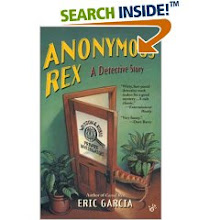
Reading Eric Garcia for Christmas
Click Here to Purchase Anonymous Rex
Vinegar Hill
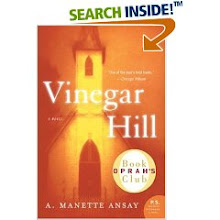
Reading A. Manette Ansay for Christmas
Click Here to Purchase Vinegar Hill
Nicotine Dreams

Reading Katie Cunningham for Christmas
Click Here to Purchase Nicotine Dreams
Junot Diaz
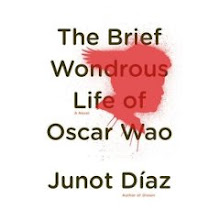
Pulitzer Prize Winner!!!
Click Here to Purchase The Brief Wondrous Life of Oscar Wao
Edwige Danticat

New Year's Reading
Click Here to Purchase Brother I"m Dying
Greed
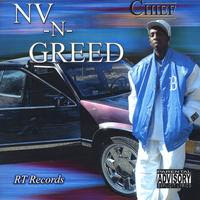
This Brother Is Scary Good
Sweet Music
One More Chance
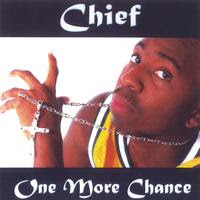
The genius Is At It Again/The Rapper CHIEF aka Sherwin Allen
Sandrine's Letter
Check out Sandrine's Letter To Tomorrow. You will like it, I insist.
Sandrine's Link
Cool Sites
- Akashic Books
- All or Nothing (My Other Blog)
- Asili The Journal
- Best Gamblling News Site
- Black Star Review
- Book Remarks
- Booktour.com
- Carolina Wren Press
- Click Here for Some Pretty Good Writing Contests
- Dedra Johnson
- Enrico Theoc
- Felicia Luna Lemus
- Florida Book Review
- Foreword Magazine
- Gambling Is Linked to Suicide
- Gambling Is Not Linked to Suicide
- Gaming Law Review
- Gene Durnell's The Thinking Journalist
- Gene Durnell's The Thinking Journalist
- Geoffrey Philp's Blog
- Get Chief's CDs on CD Baby
- Getting Past Gambling
- Gonzalo Barr's Blog
- Good Reads
- Hallema's Homepage
- Help With Gambling Addiction
- Jeremy Shipp's Website
- John Dufresne's Blog
- Leonard Nash Homepage
- Links to Seminole Casinos in Florida
- Martha Frankel's Homepage
- Michael A. Gonzales
- Miss Snark/ An Agent Gives Great Publishing Advice
- More Addiction Help
- No Gambling.com
- Pat MacEnulty
- ScrewIowa.com
- St. Louis Rams, The Greatest Show on Turf
- Suicide reference library
- T Cooper
- University of Florida
- Vicki Hendricks
- Walter Jacobs's Blog
- Writers Who Read
- Writing with Celia

All or Nothing

Editorial Reviews of All or Nothing
New York Times--". . . a cartographer of autodegradation . . . Like Dostoyevsky, Allen colorfully evokes the gambling milieu — the chained (mis)fortunes of the players, their vanities and grotesqueries, their quasi-philosophical ruminations on chance. Like Burroughs, he is a dispassionate chronicler of the addict’s daily ritual, neither glorifying nor vilifying the matter at hand."
Florida Book Review--". . . Allen examines the flaming abyss compulsive gambling burns in its victims’ guts, self-esteem and bank accounts, the desperate, myopic immediacy it incites, the self-destructive need it feeds on, the families and relationships it destroys. For with gamblers, it really is all or nothing. Usually nothing. Take it from a reviewer who’s been there. Allen is right on the money here."
Foreword Magazine--"Not shame, not assault, not even murder is enough reason to stop. Allen’s second novel, All or Nothing, is funny, relentless, haunting, and highly readable. P’s inner dialogues illuminate the grubby tragedy of addiction, and his actions speak for the train wreck that is gambling."
Library Journal--"Told without preaching or moralizing, the facts of P's life express volumes on the destructive power of gambling. This is strongly recommended and deserves a wide audience; an excellent choice for book discussion groups."—Lisa Rohrbaugh, East Palestine Memorial P.L., OH
LEXIS-NEXIS--"By day, P drives a school bus in Miami. But his vocation? He's a gambler who craves every opportunity to steal a few hours to play the numbers, the lottery, at the Indian casinos. Allen has a narrative voice as compelling as feeding the slots is to P." Betsy Willeford is a Miami-based freelance book reviewer. November 4, 2007
Publisher’s Weekly--"Allen’s dark and insightful novel depicts narrator P’s sobering descent into his gambling addiction . . . The well-written novel takes the reader on a chaotic ride as P chases, finds and loses fast, easy money. Allen (Churchboys and Other Sinners) reveals how addiction annihilates its victims and shows that winning isn’t always so different from losing."
Kirkus Review--"We gamble to gamble. We play to play. We don't play to win." Right there, P, desperado narrator of this crash-'n'-burn novella, sums up the madness. A black man in Miami, P has graduated from youthful nonchalance (a '79 Buick Electra 225) to married-with-a-kid pseudo-stability, driving a school bus in the shadow of the Biltmore. He lives large enough to afford two wide-screen TVs, but the wife wants more. Or so he rationalizes, as he hits the open-all-night Indian casinos, "controlling" his jones with a daily ATM maximum of $1,000. Low enough to rob the family piggy bank for slot-machine fodder, he sinks yet further, praying that his allergic 11-year-old eat forbidden strawberries—which will send him into a coma, from which he'll emerge with the winning formula for Cash 3 (the kid's supposedly psychic when he's sick). All street smarts and inside skinny, the book gives readers a contact high that zooms to full rush when P scores $160,000 on one lucky machine ("God is the God of Ping-ping," he exults, as the coins flood out). The loot's enough to make the small-timer turn pro, as he heads, flush, to Vegas to cash in. But in Sin City, karmic payback awaits. Swanky hookers, underworld "professors" deeply schooled in sure-fire systems to beat the house, manic trips to the CashMyCheck store for funds to fuel the ferocious need—Allen's brilliant at conveying the hothouse atmosphere of hell-bent gaming. Fun time in the Inferno.
Florida Book Review--". . . Allen examines the flaming abyss compulsive gambling burns in its victims’ guts, self-esteem and bank accounts, the desperate, myopic immediacy it incites, the self-destructive need it feeds on, the families and relationships it destroys. For with gamblers, it really is all or nothing. Usually nothing. Take it from a reviewer who’s been there. Allen is right on the money here."
Foreword Magazine--"Not shame, not assault, not even murder is enough reason to stop. Allen’s second novel, All or Nothing, is funny, relentless, haunting, and highly readable. P’s inner dialogues illuminate the grubby tragedy of addiction, and his actions speak for the train wreck that is gambling."
Library Journal--"Told without preaching or moralizing, the facts of P's life express volumes on the destructive power of gambling. This is strongly recommended and deserves a wide audience; an excellent choice for book discussion groups."—Lisa Rohrbaugh, East Palestine Memorial P.L., OH
LEXIS-NEXIS--"By day, P drives a school bus in Miami. But his vocation? He's a gambler who craves every opportunity to steal a few hours to play the numbers, the lottery, at the Indian casinos. Allen has a narrative voice as compelling as feeding the slots is to P." Betsy Willeford is a Miami-based freelance book reviewer. November 4, 2007
Publisher’s Weekly--"Allen’s dark and insightful novel depicts narrator P’s sobering descent into his gambling addiction . . . The well-written novel takes the reader on a chaotic ride as P chases, finds and loses fast, easy money. Allen (Churchboys and Other Sinners) reveals how addiction annihilates its victims and shows that winning isn’t always so different from losing."
Kirkus Review--"We gamble to gamble. We play to play. We don't play to win." Right there, P, desperado narrator of this crash-'n'-burn novella, sums up the madness. A black man in Miami, P has graduated from youthful nonchalance (a '79 Buick Electra 225) to married-with-a-kid pseudo-stability, driving a school bus in the shadow of the Biltmore. He lives large enough to afford two wide-screen TVs, but the wife wants more. Or so he rationalizes, as he hits the open-all-night Indian casinos, "controlling" his jones with a daily ATM maximum of $1,000. Low enough to rob the family piggy bank for slot-machine fodder, he sinks yet further, praying that his allergic 11-year-old eat forbidden strawberries—which will send him into a coma, from which he'll emerge with the winning formula for Cash 3 (the kid's supposedly psychic when he's sick). All street smarts and inside skinny, the book gives readers a contact high that zooms to full rush when P scores $160,000 on one lucky machine ("God is the God of Ping-ping," he exults, as the coins flood out). The loot's enough to make the small-timer turn pro, as he heads, flush, to Vegas to cash in. But in Sin City, karmic payback awaits. Swanky hookers, underworld "professors" deeply schooled in sure-fire systems to beat the house, manic trips to the CashMyCheck store for funds to fuel the ferocious need—Allen's brilliant at conveying the hothouse atmosphere of hell-bent gaming. Fun time in the Inferno.
At Books and Books
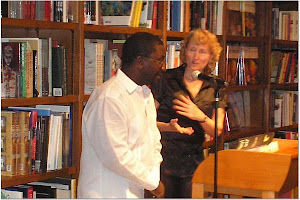
Me And Vicki at Our Reading
Bio
Preston L. Allen is the recipient of a State of Florida Individual Artist Fellowship in Literature and the Sonja H. Stone Prize in Fiction for his short story collection Churchboys and Other Sinners (Carolina Wren Press 2003). His works have appeared in numerous publications including The Seattle Review, The Crab Orchard Review, Asili, Drum Voices, and Gulfstream Magazine; and he has been anthologized in Here We Are: An Anthology of South Florida Writers, Brown Sugar: A Collection of Erotic Black Fiction, Miami Noir, and the forthcoming Las Vegas Noir. His fourth novel, All Or Nothing, chronicles the life of a small-time gambler who finally hits it big. Preston Allen teaches English and Creative Writing in Miami, Florida.